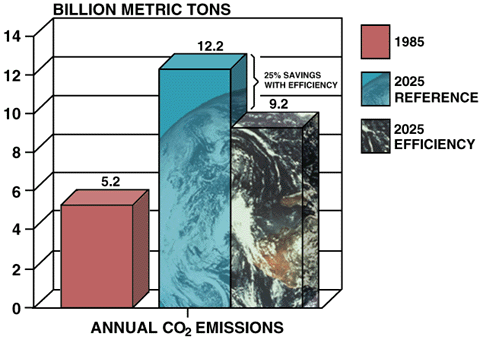


Energy efficiency improvement can probably reduce global
CO2
emissions. (From Levine, M., et al. 1991. Energy efficiency, developing countries, and
Eastern Europe, Global Energy Efficiency Initiative, Washington, D.C.)

How can U.S. policy that is related to energy strategies improve the development prospects of low- and middle-income countries in ways that contribute to more effective environmental protection?

Energy efficiency improvement is the most promising option for developing countries and Eastern Europe.
Low-impact fossil energy sources such as natural gas and biomass energy systems will play important roles.
Biomass for energy is the most neglected of the renewable energy supply options in most developing countries.

Wilbanks, T. J., et al. 1991. Energy and electricity supply and demand: Implications for the global environment. pp. 7-160. In Electricity and the Environment, Senior Expert Symposium, Helsinki (IAEA-TECDOC-624). Vienna, International Atomic Energy Agency.
Integrated Assessment Briefs. 1995. ORNL/M-4227. Oak Ridge National Laboratory, Oak Ridge, TN.